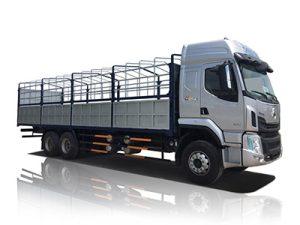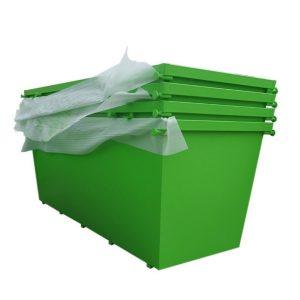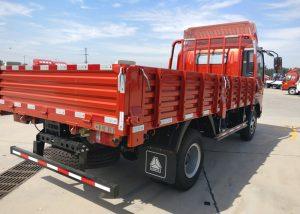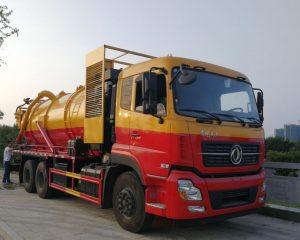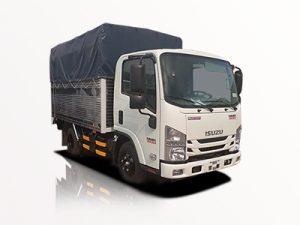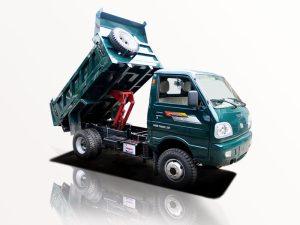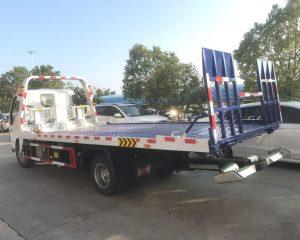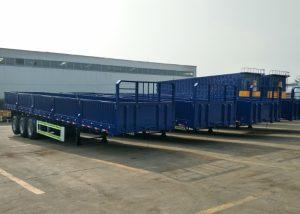Monday to Saturday - 8:00 -17:30
Unlocking the Benefits of Trash Compactor Trailers: Everything You Need to Know
Introduction
In today’s environmentally conscious world, effective waste management is crucial for both businesses and households. One innovative solution that has gained popularity is the trash compactor trailer. This guide explores everything you need to know about these remarkable vehicles, from their functionality and benefits to practical tips for choosing the right one for your needs. Whether you are a contractor, a municipal service provider, or a homeowner looking for efficient waste management, you will find valuable insights in this article.
What is a Trash Compactor Trailer?
A trash compactor trailer is a specialized trailer designed to compact waste materials prior to transportation to disposal sites. These trailers utilize hydraulic systems to compress waste, significantly reducing its volume. This feature not only maximizes space but also minimizes transportation costs and environmental impact.
Components of a Trash Compactor Trailer
- Compaction System: Uses hydraulic power to compress waste.
- Storage Chamber: Holds compacted waste for transport.
- Towing Mechanism: Allows easy transport via a vehicle.
- Safety Features: Includes locking mechanisms and weight sensors.
Benefits of Using a Trash Compactor Trailer
Why should you consider investing in a trash compactor trailer? Here are some of the most compelling benefits:
1. Space Efficiency
Trash compactor trailers can compress waste material by up to 75%, maximizing storage capacity and minimizing the need for frequent pickups.
2. Cost-Effectiveness
By reducing the volume of waste, these trailers lower transportation costs. This is particularly beneficial for businesses that generate large amounts of waste.
3. Environmental Impact
Compacted waste takes up less space in landfills, leading to decreased demand for landfill space and reduced greenhouse gas emissions.
4. Improved Hygiene
Trash compactor trailers help contain unpleasant odors and reduce the attraction of pests, improving sanitation in waste management procedures.
5. Versatility
These trailers are ideal for various applications, including construction sites, landfills, municipal waste management, and large-scale events.
Types of Trash Compactor Trailers
There are several types of trash compactor trailers, tailored to meet different needs. Here’s a breakdown:
1. Fixed Trash Compactor Trailers
These trailers are permanently installed at a location and are usually used in commercial settings. They offer high compaction rates.
2. Portable Trash Compactor Trailers
Ideal for temporary projects, these trailers can be easily transported and used at different sites, making them versatile for events or construction.
3. Rear-Load Compactor Trailers
Designed for quick loading, rear-load compactors allow easy access from the back for faster waste disposal.
4. Side-Load Compactor Trailers
Similar to rear-load models but designed for side access. Ideal for locations where maneuvering space is limited.
How to Choose the Right Trash Compactor Trailer
When selecting a trash compactor trailer, consider the following factors:
1. Size and Capacity
Evaluate the volume of waste you generate. Larger businesses may require a bigger trailer, while smaller operations can opt for a more compact model.
2. Mobility
Depending on your needs, determine whether a stationary or portable unit better suits your operation.
3. Durability and Material
Look for trailers made from durable materials that can withstand harsh conditions, especially if used on construction sites.
4. Hydraulic System
Ensure the compactor has a reliable hydraulic system for effective waste compression. Check for warranty and service agreements.
5. Compliance and Regulations
Be aware of local waste management regulations and choose a trailer that meets these standards.
Maintenance Tips for Trash Compactor Trailers
Proper maintenance is critical to ensure the longevity of your trash compactor trailer:
1. Regular Inspections
Conduct routine checks of hydraulic components and tires to prevent breakdowns.
2. Clean the Unit
Keep the trailer clean to avoid odor build-up and pest attraction. Regularly wash both the exterior and the interior.
3. Lubrication
Apply appropriate lubricants to moving parts based on manufacturer recommendations to ensure smooth operation.
4. Monitor Compaction Performance
Track compaction efficiency. If performance drops, inspect and service the hydraulic system.
Applications of Trash Compactor Trailers
Trash compactor trailers are utilized across various sectors:
1. Construction Industry
Used for managing construction debris, which can be bulky and voluminous.
2. Municipal Waste Management
Ideal for local authorities managing waste collection and disposal.
3. Large Events
Effective for concerts, festivals, and fairs where waste generation is high.
4. Industrial Facilities
Helpful in factories and warehouses that generate large amounts of waste materials.
Challenges in Using Trash Compactor Trailers
While trash compactor trailers offer numerous benefits, there are also challenges to consider:
1. Initial Investment
The initial purchase cost can be significant, especially for high-capacity models.
2. Maintenance Requirements
Regular maintenance is needed to ensure optimal performance, which can add to operational costs.
3. Regulation Compliance
Staying compliant with waste management regulations can require additional effort and resources.
Best Practices for Maximizing Efficiency
To get the most out of your trash compactor trailer, follow these best practices:
1. Sort Waste
Separate recyclables from general waste to enhance recycling efforts. This can reduce landfill load.
2. Train Personnel
Ensure staff is properly educated on how to operate and maintain the trailer efficiently.
3. Utilize Timely Pick-Up Schedules
Establish a waste pick-up schedule to prevent overflow and ensure continued efficiency in waste management.
4. Monitor and Evaluate
Regularly track performance metrics to identify areas for improvement.
Frequently Asked Questions (FAQ)
1. How much does a trash compactor trailer cost?
The cost can vary widely based on size, features, and brand, typically ranging from $10,000 to over $50,000.
2. How do I know what size trailer I need?
Consider your waste generation volume and space limitations when selecting size. Consulting with a waste management professional can help.
3. Can I rent a trash compactor trailer?
Yes, many companies offer rental options for trash compactor trailers, which can be ideal for short-term projects.
4. Are trash compactor trailers environmentally friendly?
Yes, they reduce the volume of waste sent to landfills, lowering environmental impact.
5. What maintenance is required for trash compactor trailers?
Regular inspections, cleaning, lubricating moving parts, and monitoring hydraulic systems are essential for maintenance.
6. How can I enhance the lifespan of my trailer?
Follow maintenance protocols, address issues promptly, and ensure proper cleaning and storage conditions.


